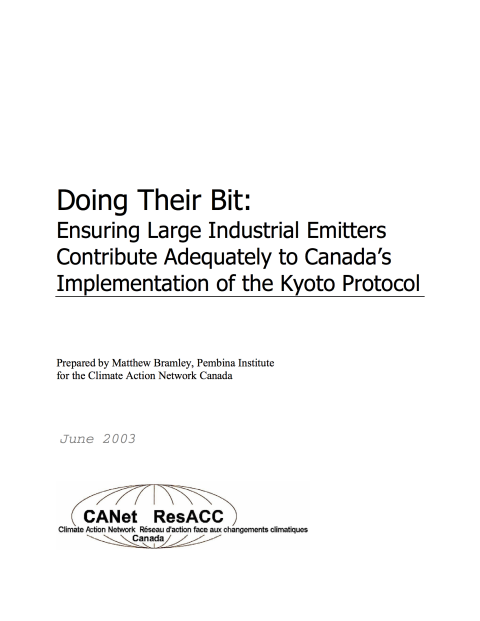In November 2002, the federal government issued its Climate Change Planfor Canada, a blueprint for Canada's implementation of the Kyoto Protocol. This report assesses the adequacy of the scenario that the Plan lays out for reducing GHG emissions from industry. It also makes recommendations for how that scenario should be interpreted to uphold the environmental integrity and fairness of the Plan as a whole.The most important policy measure for industry in the Climate Change Plan for Canada is a proposed system of covenants (negotiated agreements) and emissions trading for large industrial emitters. Indeed,this is by far the single largest item, in terms of emission reductions,in the Plan as a whole. More than anything else, Canada's success in meeting its Kyoto Protocol target will depend on the covenants and emissions trading system delivering the emission reductions it is intended to deliver. Wrong decisions taken on the details of the covenants and emissions trading system could severely undermine the effectiveness and fairness not only of the system itself, but of the Climate Change Plan for Canada as a whole.This report therefore largely focuses on the key questions that must be answered in the development of the covenants and emissions trading system for large industrial emitters.
Doing Their Bit
Ensuring Large Industrial Emitters Contribute Adequately to Canada's Implementation of the Kyoto Protocol

Tags:
Related Research & Analysis

Electricity, Oil & Gas
October 7, 2022
Publication
Design Changes to the Investment Tax Credit for Carbon Capture, Utilization and Storage
Submission to Department of Finance Canada
Programs
Leading the transition to clean energy requires advancing solutions to today’s energy challenges from various angles.
The Pembina Institute has spent four decades working to reduce the environmental impacts of Canada’s energy production and to provide actionable ideas on how to implement clean energy.






